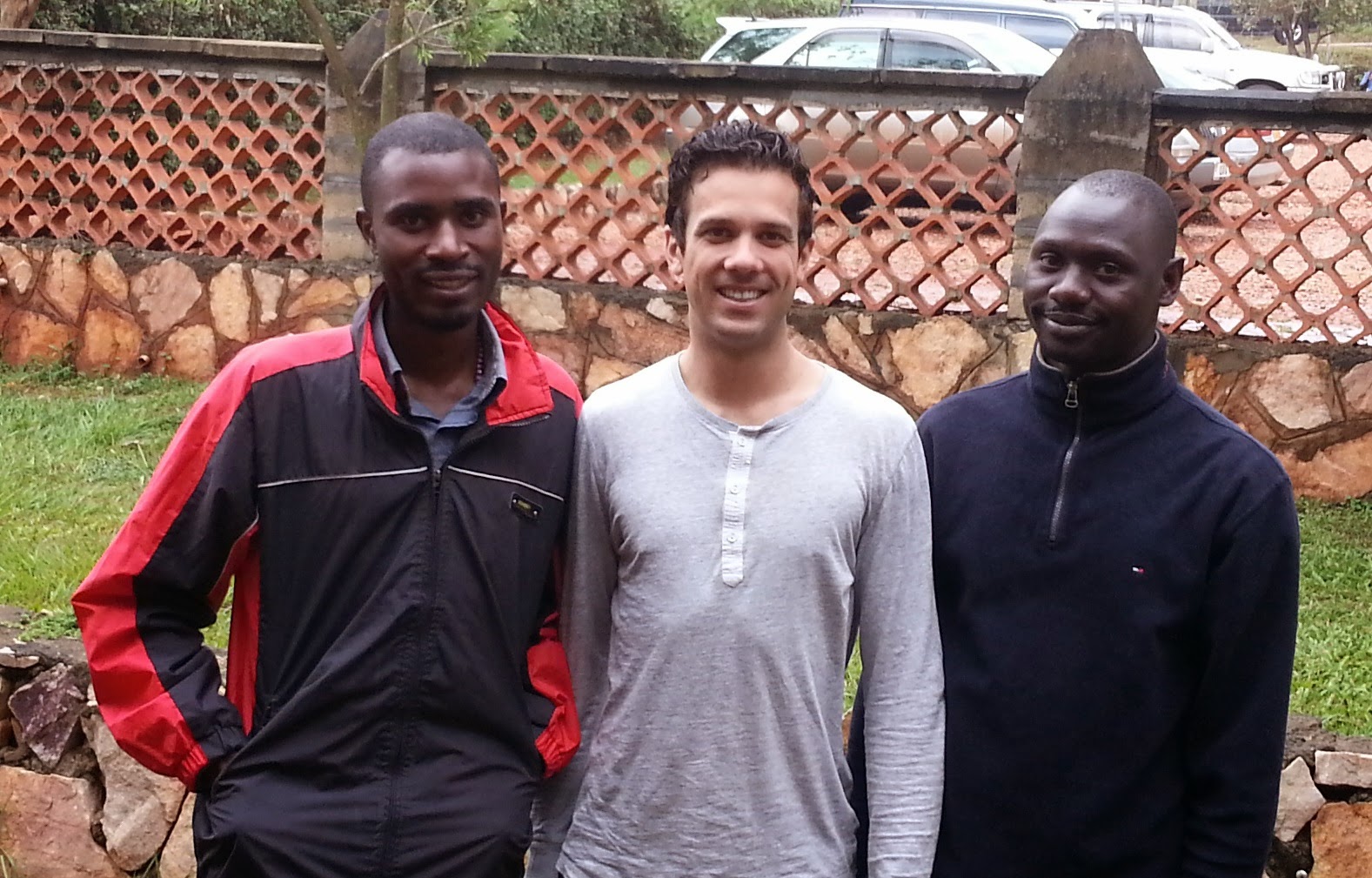The first day!
First time tea break, which in Uganda is not an afternoon tea, but a morning tea at 11am with fried donuts (which in Uganda are not round but sticks) and samosa’s, delicious Indian style fried vegetable triangles and of course tea.
As if that did not fill us up… 1pm lunchtime: First time Ugandan traditional meal, and definitely not the last time! We were introduced to the typical lunchtime dish which is a composition of carbs: Matoke (plantane mash), steam cooked Irish potato (which at home we just call ‘potato‘), brown beans, rice, ground nut sauce (which we could call ‘peanut’ sauce) and greens. Fun fact: In Uganda the yearly consumption of Matoke is 172 kilo’s per person. Which makes you think, because eating half a kilo a day of plantane mash is quite an achievement.
Svenja’s birthday. Yes, straight on the first day we celebrated the first birthday. Secretly, Nina and Pernille organized a cake for Svenja (picked up on their first boda boda ride). The cake turned out to be a true white iced wedding cake. Missing bride and groom, but not less delicious.
As you can read, the first day was a lot about first time food. In the morning, we had a long round of introductions of CBS and MUBS professors. We met our research teams for the first time and went straight to the point: what challenges to expect when working together? Stereotypes and challenges of intercultural group work were written down to ensure that we were not going to make those same mistakes (which obviously are going to be made). Probably this is just an ex ante reminder of the inevitable ¨I told you so¨ by professors.
To round up the last 1st timers: as the evening before we had our 1st 2 hour wait for food (which turned out to be long, but not exceptional in Ugandan restaurants) and our 1st salsa dance class in a Jazz club in the middle of Africa. - Which does sound like a random combination BUT, for some reason did do the trick and lured the CBS girls to the dance floor. -This night most took a safe bet and decided to go for a quick meal and straight to our 1st night out at club Liquid. Not so local, but not less fun. The heat of the day had made place for a cold breeze. We danced away, but as this was just the 1st night, it ended nice and early, saving our energy for the days to come.
All in all, it the 1st day was full of 1st and left us hungry for 2nds, keep posted for more!





